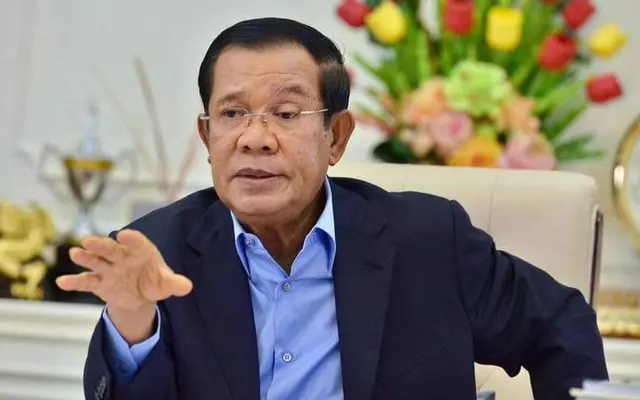U.S. President Donald Trump said Thursday that firing the director of the Federal Bureau of Investigation (FBI) was his "own decision," reversing a White House statement that the decision was based on recommendations from the Justice Department.
"I was going to fire him regardless," Trump told NBC, offering his account of the events leading up to the shocking dismissal of James Comey.
"The FBI has been in turmoil...You take a look at the FBI a year ago, it was in virtual turmoil -- less than a year ago. It hasn't recovered from that," Trump explained why he wanted to fire Comey.
"I was going to fire regardless of recommendation," Trump said, in contrast to a statement from the White House Wednesday which said he made the decision after he was recommended to do so by Attorney General Jeff Sessions and Deputy Attorney General Rod Rosenstein.
In a letter to Comey on Tuesday, Trump said the decision was made based on recommendations from Sessions and Rosenstein.
The saying was backed by White House spokesperson Sarah Sanders who said Wednesday that Trump had met with Sessions and Rosenstein on Monday to discuss Comey's role in the FBI, and asked them to submit a written recommendation.
Trump fired Comey Tuesday after receiving recommendations from Session and Rosenstein.
"I just want somebody that's competent. I am a big fan of the FBI. I love the FBI," Trump said, when asked whether firing Comey had anything to do with an ongoing probe into possible collusion between the Trump campaign and the Russian government.
"This Russia thing with Trump and Russia is a made-up story. It's an excuse by the Democrats for having lost an election that they should've won," Trump said.
Despite insisting that there was no wrongdoing by the Trump campaign in regard to Russia, Trump said that he wanted things to be "absolutely done properly."
"I might even lengthen out the investigation," Trump said.
Trump said he had never asked Comey to drop the Russian investigation, nor had anyone from the White House.
In a Congress hearing earlier Thursday, FBI acting Director Andrew McCabe confirmed that the FBI had not felt any interference and promised to inform Congress should it happen.
Trump also clarified the circumstances under which Comey informed him that he was not personally under investigation by the FBI, as mentioned in his letter to Comey Tuesday.
Trump said he had asked Comey whether he was under investigation and Comey denied it.
"He wanted to stay on as the FBI head, and I said I'll, you know, consider. We'll see what happens," Trump said.
The interview was the first time Trump spoke to the press at length about the firing of Comey, after the White House had released mixed signals and narratives on the episode.
Sanders, the White House spokeswoman, said Trump had been considering letting Comey go since coming into office, while Sean Spicer, the White House press secretary, told a press briefing last week that the president "had confidence" in Comey.
So far, the episode has attracted a wave of fiery criticism from Democrats, who maintained that firing Comey was part of Trump's plan to undercut the FBI investigation and called for an independent prosecutor to take over the investigation.
Even some Republican Congress members are baffled by Trump's choice.
Only 12, or about a quarter of Senate Republicans explicitly backed Trump's decision, while 15 voiced concerns over the move.
John McCain, a Republican senator who chairs the Senate Military Services Committee, has called for stepping up the inquiry about the Trump campaign's ties with Russia.
(ASIA PACIFIC DAILY)
 简体中文
简体中文

